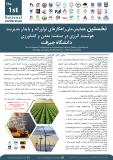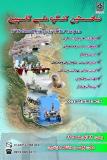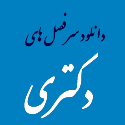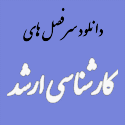The 2nd International Conference: Architecture Across Boundaries 2024
The 2nd International Conference: Architecture Across Boundaries 2024
30th August to 1st September 2024
Suzhou, China
The first Architecture across Boundaries(AAB) conference was successfully held in Suzhou in 2019. "Boundaries" in the built environment are clearly different from what that implied in 2019. The term went through new interpretations encountering new technologies and new human crisis in the past few years. The 2nd AAB conference will highlight, debate and discuss the challenges and opportunities brought by the new technologies to research and practices, whether they have no boundaries or create new boundaries to the built environment, a topic that has rarely been discussed from multiple perspectives. It aims to bridge the gaps between the physical environment and virtual technology and between technology and human life, which will be the key theme of this conference. This conference will take an interdisciplinary approach by orchestrating contributors from different fields, as diverse as architectural studies, civil engineering, computational design, design education, urban studies and sociology. This event will be for three days, taking place on 30 August - 1 September 2024, and will consist of panel presentations, workshops and keynote speeches of leading practitioners and theorists.
We welcome contributions on topics belonging to or crossing the boundaries of the below five themes. Both practitioners and academics, including postgraduate research students, are encouraged to submit abstracts and/or posters illustrating research, critical reflections, best practices and case studies.
CALL FOR ABSTRACTS
Please submit your abstract of no more than 400 words no later than 1 October 2023 through the Easychair platform: https://easychair.org/conferences/?conf=aab2024
- Deadline of Abstracts Submission: 1 October 2023
- Notification of Abstract Acceptance: 25 November 2023
FULL PAPER SUBMISSION
Full papers (maximum 6-8 pages including reference list) are invited for submission. All paper submissions are subject to double-blind peer-review. All accepted and presented full papers will be published via Springer and submitted for indexing to Scopus and EI.
- Full paper submission deadline: 5 January 2024
- Full paper review outcome to authors: 10 March 2024
- Camera Ready Submission Deadline: 5 April 2024
Before submitting the full paper contributions, please pay attention to the Author Guidelines.
THEMES
Theme 1. Mapping New Typologies of Hybrid Spaces
Track Chair: Dr. Deborah Middleton
Accelerations in technology and challenges in the availability of physical space in cities for work social gathering, entertainment and recreation is spawning new functional enhanced spaces often referred to as hybrid spaces. Mapping the genomes, edges and morphological connections of hybrid space is needed to construct theories of boundaries, connections and intersections, and typological and topological insight into hybrid spatial morphology and their experiential visual qualities. This track seeks papers that reconsider theories of assemblage in the context of historic and contemporary architecture, urban landscapes, or seeks to build new theories of assemblage. Space syntax, linear landscape modeling or other innovative analysis methods are encouraged to join this track.
Theme 2. Architectural Education and Professional Practice Across Contexts
Track Chair: Dr. Sofia Quiroga
Within the ever-evolving international market, architects possess an inherent capacity to actively and purposefully adapt and address contemporary challenges across diverse contexts. This theme aims to foster a holistic understanding of the evolving role of architects and the transformative potential of design thinking in education and collaborative practice across international contexts. By promoting interdisciplinary conversations and knowledge exchange, this theme encourages professionals, educators, researchers, and policymakers to collectively envision a future where architects make meaningful contributions to contemporary global challenges. Papers in this track are invited to discuss topics such as (but not limited to): The potential of educational frameworks to bridge theoretical knowledge and professional practice across academic contexts; The construction of models of interdisciplinary collaboration, and strategies for effective communication and teamworking across different cultural and regulatory contexts; The role of the architectural profession, public participation, and social impact in shaping the built environment across geographical contexts are also encouraged to join this track.
Theme 3. Computational Design and Digital Fabrication Without Boundaries
Track Chair: Dr. Mia Tedjosaputro
In an ideal notion of "without boundaries" in which the traditional constraints are absent, it might enable unprecedented creative expression within the area of computational design and digital fabrication. However, there are several boundaries or limitations that designers and practitioners may encounter in their practice. This track focuses on understanding these existing constraints. Papers in this track are invited to discuss a few limiting key aspects such as (but not limited to): technical limitations, material constraints, production time and cost limitations, limitations derived from design complexity, human expertise limitations, and legal and ethical frameworks limitations. Ways, practices, or considerations that present how designers exploit challenges and turn them into design potentials are welcomed.
Theme 4: Systemic Approaches to Architectural Design
Track Chair: Dr. Claudia Westermann
As the world has been experiencing a prolonged state of crisis, it has become increasingly evident that humanity's problems cannot be effectively addressed from ontological perspectives that emphasize the boundaries of categories and prioritize the static over the dynamic. Systemic approaches offer an opportunity to radically rethink what a crisis is, whether it is political, cultural or environmental, as they shift the focus of enquiry from entities to dynamic relations. A crisis in this context is always a crisis of ecology. Systemic approaches to architectural design may emphasize the interdependencies of art, technology and the environment. They may construct frameworks for methodologies of design that reach across disciplines and cultures to create relations where relations are needed.
Theme 5: Urban Prosthetics Across Technology and Morphology
Track Chair: Dr. Roberto Podda
Using "exponential technologies" (Kotler 2012) implies a redefinition of the relationship between the human body and the urban totality. The City becomes a multiscalar pole in which the temporality of the scale of the human body passes through the multiplicity of networks that have become so performative and pervasive as to "herald the formation of a disseminated collective hyper-subject" (Costa 2012). The "hyper-technological prostheses" (d'Alfonso 2004) connected to global networks "make each of us a node of the system potentially able to interact simultaneously" (Castells 2006). There is thus a profound change in the concept of the City transforming itself no longer into a place but into a scene in which "the otherness between two states of time of the "present" is plastically expressed: the present of the intimate of the actor and the public present of the practicable scenario frequented" (d'Alfonso 1994). This City is always alive and viable, and it can be used simultaneously at different times and in different ways, exponentially expanding the possibilities of organising an agenda of personal time no longer has to consider physical limits. Papers in this track should address what happens to the City as a physical phenomenon. How do we harmonise material and immaterial?
- هشدار به داوطلبان؛ حذف از قبولی کارشناسی ارشد با کمترین مغایرت معدل (1404/9/22)
- فرایند جذب اعضای هیئت علمی کلید خورد؛ آغاز مرحله نیازسنجی دانشگاهها (1404/9/14)
- زمان ثبتنام و برگزاری آزمون کارشناسیارشد ناپیوسته سال ۱۴۰۵ اعلام شد (1404/9/12)
- طول کارشناسی ارشد یکسال و دکتری به ۳ سال کاهش مییابد؛ حذف آزمون جامع (1404/9/1)
- احتمال افزایش حقوق اساتید آزاد؛ آخرین وضعیت اعطای مسکن به هیئت علمی (1404/8/22)
- تسویه معوقات حقالتدریس و سنوات بازنشستگان دانشگاه آزاد (1404/8/17)
- ثبتنام آزمون دکتری سال ۱۴۰۵ آغاز شد (1404/8/4)
- ثبت نام آزمون دکتری سال ۱۴۰۵ از ۴ آبان آغاز می شود؛ اعلام زمان آزمون (1404/7/24)
- هزینه ثبتنام داوطلبان در تمام آزمونهای کشوری سال ۱۴۰۵ اعلام شد (1404/7/20)
- شرایط اعزام دانشجویان برای فرصت مطالعاتی خارج از کشور اعلام شد (1404/7/20)
- اسامی پذیرفتهشدگان نهایی آزمون کارشناسی ارشد سال ۱۴۰۴ اعلام شد (1404/7/12)
- نتایج نهایی کنکور کارشناسی ارشد ۱۴۰۴ اواسط مهرماه اعلام میشود (1404/7/2)
- فراخوان دوم جذب هیئت علمی دانشگاه آزاد احتمالا بهمن ماه منتشر میشود (1404/6/27)
- شروع پالایش متقاضیان هیئت علمی دانشگاه آزاد؛ جذب اساتید جدید تا ترم آینده (1404/6/25)
- کارنامه داوطلبان دکتری ۱۴۰۴ دانشگاه آزاد منتشر شد (1404/6/16)
- پذیرایی در جلسات دفاع ممنوع شد (1404/6/10)
- ۳۵۳۰ مجوز جذب هیئت علمی بدون استفاده باقی ماند (1404/5/30)
- ثبت نام جذب اعضای هیئت علمی دانشگاه آزاد از 5 مرداد آغاز میشود (1404/5/4)
- امتحانات شهریور دانشگاهها حضوری برگزار میشود (1404/4/12)
- آزمون جامع دکتری در دانشگاه آزاد فعلا پابرجاست/همه دانشجویان موظف به گذراندن آن هستند (1404/4/6)
- مهلت انتخاب رشته آزمون کارشناسی ارشد سال ۱۴۰۴ تا ۲۰ خرداد تمدید شد (1404/3/18)
- شرایط تحصیل همزمان در دورههای تحصیلی کارشناسی ارشد و دکتری اعلام شد (1404/3/5)
- جزئیات افزایش حقوق اعضای هیئت علمی و کارکنان دانشگاه آزاد (1404/2/21)
- وام خرید مسکن برای اعضای هیئت علمی تمدید شد (1404/2/20)
- دانشجویان دکتری دستیار تخصصی روسای واحدهای دانشگاه آزاد میشوند (1404/2/16)
- آغاز اولین فراخوان جذب هیئت علمی نخبگان از ۱۵ اردیبهشت (1404/2/13)
- بورس تحصیلی دولت ژاپن در سال ۲۰۲۶ اعلام شد (1404/2/8)
- پاسخنامه و کارنامه نتایج اولیه آزمون دکتری سال ۱۴۰۴ منتشر شد (1404/1/30)
- جدیدترین رشتههای مقاطع کارشناسی ارشد و دکتری سال ۱۴۰۵ معرفی شدند (1404/1/18)
- وضعیت دانشگاههای ایرانی در مهمترین رتبهبندیهای جهانی در سال 1403 (1404/1/4)
- فرصت مطالعاتی کوتاه مدت خارج از کشور برای دانشجویان دکتری فعال شد (1403/12/20)
- زمان اعلام نتایج اولیه آزمون های کارشناسی ارشد و دکتری سال ۱۴۰۴ (1403/12/3)
- آمار متقاضیان آزمونهای کارشناسی ارشد و دکتری سال ۱۴۰۴ اعلام شد (1403/11/29)
- متقاضیان استفاده از سهمیه در آزمون دکتری 1404 بخوانند (1403/11/25)
- آمار متقاضیان عضویت در هیات علمی دانشگاهها اعلام شد (1403/11/23)
- مهلت ثبت نام در فراخوان جذب اعضای هیئت علمی تمدید شد (1403/11/8)
- چالشهای جذب هیات علمی در دانشگاهها و موسسات آموزش عالی غیرانتفاعی (1403/11/5)
- آغاز فراخوان جذب اعضای هیات علمی همزمان با میلاد امام علی (ع) (1403/10/25)
- سقف حقوق اعضای هیات علمی برداشته شد (1403/10/22)
- رفع فیلتر یوتیوب برای اساتید و دانشجویان؛ دانشجویان ارشد و دکتری اینترنت ارزان میگیرند (1403/10/18)
- توضیح وزارت علوم درباره تاخیر در اعلام فراخوان جذب هیات علمی (1403/10/15)
- رفع محدودیت جذب اساتید بازنشسته در دانشگاههای غیرانتفاعی (1403/10/5)
- حل مشکل ارتقای اساتید در دانشگاههای فاقد تحصیلات تکمیلی (1403/9/19)
- دانشگاه پیام نور در ارشد و دکتری پذیرش «فراگیر» ندارد (1403/9/3)
- صدور حکم یکساله حق التدریس با حقوق استادیار پایه یک تصویب شد (1403/8/26)
- تقویم زمانی ثبت نام و برگزاری چهار آزمون کشوری سال ۱۴۰۴ (1403/8/22)
- اعلام شرایط عمومی و اختصاصی داوطلبان دریافت بورس تحصیلی (1403/8/20)
- امکان ثبت نام پذیرفتهشدگان روزانه در آزمونهای ارشد و دکتری ۱۴۰۴ فراهم شد (1403/8/16)
- تشریح اعمال دو نوع سهمیه در آزمون دکتری نیمهمتمرکز سال ۱۴۰۴ (1403/8/6)
- آغاز ثبتنام آزمون دکتری نیمهمتمرکز (Ph.D) سال ۱۴۰۴
- پاسخ دانشگاه آزاد به انتقادات کارمندان و اساتید (1403/7/25)
- درخواست رسیدگی به مطالبات اساتید و کارکنان دانشگاه آزاد (1403/7/23)
- جزئیات سن بازنشستگی اعضای هیات علمی دانشگاهها اعلام شد (1403/7/15)
- فراخوان جذب مدرس در دانشگاه علمی کاربردی تمدید شد (1403/7/8)
- فراخوان جدید جذب اعضای هیات علمی دانشگاههای علوم پزشکی (1403/7/4)
- جذب هیات علمی وابسته از مقطع ارشد در دانشگاه آزاد (1403/6/20)
- مهلت ثبتنام جذب هیات علمی تمام وقت دانشگاه آزاد تمدید شد (1403/6/12)
- آغاز جذب مدرس حق التدریس در دانشگاه علمی کاربردی از ۱۷ شهریور (1403/6/7)
- فرایند اختصاص سهمیههای جذب اعضای هیات علمی به دانشگاه (1403/6/5)
- آغاز فراخوان جذب هیات علمی تمام وقت دانشگاه آزاد از 29 مرداد (1403/5/28)
- تحقیق درباره جذب هیات علمی به بسیج اساتید واگذار شد (1403/5/13)
- محدودیت به کارگیری اعضای هیات علمی در مناصب سیاسی رفع شد (1403/5/7)
- سن جذب اعضای هیات علمی به ۴۰ سال کاهش یافت (1403/5/3)
- زمان ثبت نام آزمون آیلتس اعلام شد (1403/4/25)
- زمان فراخوان جدید جذب اعضای هیات علمی اعلام شد (1403/4/19)
- میانگین زمانی فرایند جذب هیات علمی/تاخیر دو ماهه در اعلام فراخوان (1403/4/17)
- آیین نامه جامع اعطای بورس به دانشجویان ابلاغ شد/ سهم بورسیهها از جذب در هیات علمی (1403/4/12)
- نامه وزارت علوم درباره امکان تبدیل وضعیت استخدامی اعضاء هیات علمی (1403/4/4)
- اعلام جزییات افزایش حقوق اعضای هیأت علمی و کارکنان دانشگاه آزاد (1403/3/20)
- کارنامه انتخاب رشته کنندگان آزمون دکتری سال ۱۴۰۳ منتشر شد (1403/3/12)
- کارنامه آزمون ورودی کارشناسی ارشد ناپیوسته سال ۱۴۰۳ منتشر شد (1403/3/9)
- آیین نامه ارتقای اساتید از مقاله محوری خارج شد (1403/3/8)
- جزئیات پذیرش دانشجو در موسسات پژوهشی وابسته به وزارت علوم (1403/2/29)
- کنکورهای آینده تستی تشریحی میشود (1403/2/23)
- زمان اعلام نتایج آزمون ارشد مشخص شد (1403/2/18)
- محدودیت اعطای پایههای تشویقی اعضای هیات علمی لغو شد (1403/2/8)
- جذب هیات علمی با مدرک دکتری در دانشگاه فنی و حرفه ای لغو شد (1403/2/6)
- شورای تحقیق جذب هیات علمی تشکیل میشود (1403/1/29)
- مرکز جذب اعضای هیات علمی وزارت علوم «امریه سربازی» جذب میکند (1403/1/28)
- کف و سقف حقوق اعضای هیات علمی در سال 1403 (1403/1/19)
- کنفرانس بینالمللی زن معاصر و ارزشهای الهی برگزار میشود
- افزایش ۲ برابری مقالات ارسالی به چهاردهمین کنفرانس بینالمللی مهندسی مواد و متالورژی
- ایران در ماههای آینده میزبان کنفرانس «جنبش جهانی حمایت از خانواده» خواهد بود
- کنفرانس ملی «حکمرانی خردمندانه توسعه پایدار شهری» در رفسنجان برگزار میشود
- برگزاری دومین کنگره ملی صنعت گوشت
- جزئیات برگزاری همایش «تهدیدات شناختی و حکمرانی محلی» در دانشگاه اصفهان
- تمدید مهلت ارسال مقالات یازدهمین کنگره سالانه ملی عمران، معماری، هنر و توسعه شهری
- فراخوان مقاله فصلنامه علمی جمعیت سازمان ثبت احوال کشور
- برگزاری کنفرانس سالانه ملی مدیریت، تجاری سازی، اقتصاد دانش بنیان و سرمایه گذاری برای تولید
- برگزاری کنفرانس سالانه ملی فناوری های عمران، طراحی و ساخت، انرژی، مواد و ماشین آلات پیشرفته
- برگزاری کنفرانس سالانه ملی فناوری اطلاعات، نانوتکنولوژی، هوش مصنوعی و آینده پژوهی فناوری
- برگزاری کنفرانس سالانه ملی فناوری های معماری و هنر، شهر هوشمند، صنایع نرم وخلاق و فرهنگ فناوری
- برگزاری پنجمین کنگره بین المللی مدیریت، اقتصاد، علوم انسانی، آموزش و پرورش و توسعه کسب و کار
- برگزاری هفتمین کنفرانس بین المللی و هشتمین کنفرانس ملی عمران، معماری، هنر و طراحی شهری
- برگزاری نهمین دوره کنگره سالانه بین المللی توسعه کشاورزی، منابع طبیعی، محیط زیست و گردشگری ایران، بهمن ماه 1404
- برگزاری دهمین کنفرانس بین المللی پژوهش در علوم و مهندسی و هفتمین کنگره بین المللی عمران، معماری و شهرسازی آسیا / دانشگاهKasem Bundit بانکوک
- آخرین تمدید مهلت ارسال مقالات نهمین کنگره بین المللی توسعه کشاورزی، منابع طبیعی، محیط زیست و گردشگری ایران
- آخرین تمدید مهلت ارسال مقالات دهمین کنفرانس بین المللی پژوهش در علوم و مهندسی و هفتمین کنگره بین المللی عمران، معماری و شهرسازی آسیا
- آخرین تمدید مهلت ارسال مقالات چهارمین کنفرانس بین المللی معماری، عمران، شهرسازی، محیط زیست و افق های هنر اسلامی
- برگزاری یازدهمین دوره کنفرانس سوخت و احتراق ایران
- همدان میزبان سومین کنفرانس گردشگری سلامت اکو است
- آخرین تمدید مهلت ارسال مقالات چهارمین کنگره بین المللی مدیریت، اقتصاد، علوم انسانی و توسعه کسب و کار
- برگزاری چهارمین کنفرانس بینالمللی هولوگرافی و کاربردهای آن (ICHA 2025)
- برگزاری نهمین کنفرانس بینالمللی آموزش مهندسی ایران
- برگزاری نهمین همایش پیشرفتهای معماری سازمانی ایران
- زنجان از دومین کنگره بینالمللی پیشگیری از سرطان میزبانی میکند
- نگاهی به برگزاری یازدهمین دوره کنگره سالانه ملی عمران، معماری، هنر و توسعه شهری
- برگزاری هفتمین کنفرانس بین المللی و هشتمین کنفرانس ملی عمران، معماری، هنر و طراحی شهری
- تمدید مهلت ارسال مقالات چهارمین کنفرانس بین المللی معماری، عمران، شهرسازی، محیط زیست و افق های هنر اسلامی
- برگزاری نهمین دوره کنگره سالانه بین المللی توسعه کشاورزی، منابع طبیعی، محیط زیست و گردشگری ایران
- تمدید مهلت ارسال مقالات چهارمین کنگره بین المللی مدیریت، اقتصاد، علوم انسانی و توسعه کسب و کار
- برگزاری دهمین کنفرانس بین المللی پژوهش در علوم و مهندسی و هفتمین کنگره بین المللی عمران، معماری و شهرسازی آسیا / دانشگاهKasem Bundit بانکوک
- چهارمین کنگره بین المللی کشورهای غرب آسیا و شمال آفریقا (وانا)؛ ۱۴-۱۳ اردیبهشت ۱۴۰۴
- هشتمین سمپوزیوم کرایوبیولوژی با عنوان مهندسی زیست انجماد کاربردی پژوهشگاه رویان برگزار می شود
- تمدید مهلت ارسال مقالات چهارمین کنفرانس بین المللی معماری، عمران، شهرسازی، محیط زیست و افق های هنر اسلامی
- آخرین تمدید مهلت ارسال مقالات یازدهمین کنگره سالانه ملی عمران، معماری، هنر و توسعه شهری
- برگزاری چهارمین کنگره بین المللی مدیریت، اقتصاد، علوم انسانی و توسعه کسب و کار، 25 الی 26 تیر 1404، دانشگاه هنر اسلامی تبریز
- آخرین تمدید مهلت ارسال مقالات به کنفرانس بین المللی معماری، شهرسازی، هنر، طراحی صنعتی، ساخت و فناوری حکمت بنیان
- تمدید مهلت ارسال مقالات هشتمین کنگره بین المللی توسعه کشاورزی، منابع طبیعی، محیط زیست و گردشگری ایران
- تمدید مهلت ارسال مقالات یازدهمین کنگره سالانه ملی عمران، معماری، هنر و توسعه شهری
- تمدید مهلت ارسال مقالات نهمین کنفرانس بین المللی پژوهش در علوم و مهندسی و ششمین کنگره بین المللی عمران، معماری و شهرسازی آسیا
- آخرین مهلت ارسال مقالات چهارمین کنگره بین المللی مدیریت، اقتصاد، علوم انسانی و توسعه کسب و کار
- برگزاری سیزدهمین کنفرانس بینالمللی مهندسی مواد و متالورژی ایران
- نخستین سمینار بینالمللی سلامت روان الکترونیک در دانشگاه شهید بهشتی برگزار میشود
- برگزاری چهارمین کنفرانس معماری، عمران، شهرسازی، محیط زیست و افق های هنر اسلامی توسط دانشگاه هنر اسلامی تبریز
- برگزاری هشتمین دوره «مسابقات ملی دیوار خاک مسلّح» و نمایشگاه مهندسی ژئوتکنیک و ژئوسینتتیک
- آخرین تمدید مهلت ارسال مقالات به کنفرانس ملی معماری، شهرسازی، هنر، طراحی صنعتی، ساخت و فناوری حکمت بنیان
- تمدید مهلت ارسال مقالات هشتمین کنگره بین المللی توسعه کشاورزی، منابع طبیعی، محیط زیست و گردشگری ایران
- تمدید مهلت ارسال مقالات نهمین کنفرانس بین المللی پژوهش در علوم و مهندسی و ششمین کنگره بین المللی عمران، معماری و شهرسازی آسیا
- برگزاری اولین همایش کاربران توربین های گازی با تمرکز بر نیروگاه های کلاس F
- تمدید مهلت ارسال مقالات چهارمین کنگره بین المللی مدیریت، اقتصاد، علوم انسانی و توسعه کسب و کار
- تمدید مهلت ارسال مقالات یازدهمین کنگره سالانه ملی عمران، معماری، هنر و توسعه شهری
- تمدید مهلت ارسال مقالات چهارمین کنفرانس معماری، عمران، شهرسازی، محیط زیست و افق های هنر اسلامی
- نگاهی به برگزاری یازدهمین دوره کنگره سالانه ملی عمران، معماری، هنر و توسعه شهری
- تمدید مهلت ارسال مقالات کنفرانس ملی معماری، شهرسازی، هنر، طراحی صنعتی، ساخت و فناوری حکمت بنیان
- برگزاری کنفرانس بینالمللی ژئوانرژی و پنجمین کنفرانس ملی ژئومکانیک نفت
- تمدید مهلت ارسال مقالات هشتمین کنگره بین المللی توسعه کشاورزی، منابع طبیعی، محیط زیست و گردشگری ایران
- آخرین تمدید مهلت ارسال مقالات به دهمین کنگره بین المللی عمران، معماری و توسعه شهری
- تمدید مهلت ارسال مقالات نهمین کنفرانس بین المللی پژوهش در علوم و مهندسی و ششمین کنگره بین المللی عمران، معماری و شهرسازی آسیا
- ثبت نام حضور در کنفرانس بین المللی کرامت انسانی آغاز شد
- تمدید مهلت ارسال مقالات چهارمین کنفرانس معماری، عمران، شهرسازی، محیط زیست و افق های هنر اسلامی
- تمدید مهلت ارسال مقالات پنجمین کنفرانس بین المللی ابعاد نوآوری در هنرهای اسلامی و صنایع دستی
- تمدید مهلت ارسال مقالات چهارمین کنگره بین المللی مدیریت، اقتصاد، علوم انسانی و توسعه کسب و کار
- دومین همایش بینالمللی «کانت و جهان معاصر» برگزار میشود
- تمدید مهلت ارسال مقالات کنفرانس ملی معماری، شهرسازی، هنر، طراحی صنعتی، ساخت و فناوری حکمت بنیان
- برگزاری دومین کنفرانس ملی مطالعات میان رشته ای در ادبیات و هنرهای کاربردی، موسیقی، نمایش و سینما
- برگزاری پنجمین کنفرانس بین المللی ابعاد نوآوری در هنرهای اسلامی و صنایع دستی توسط دانشگاه هنر اسلامی تبریز، نمایه ISC
- تمدید مهلت ارسال مقالات چهارمین کنفرانس معماری، عمران، شهرسازی، محیط زیست و افق های هنر اسلامی
- نگاهی به برگزاری دهمین دوره کنگره سالانه بین المللی عمران، معماری و توسعه شهری
- برگزاری هشتمین دوره کنگره سالانه بین المللی توسعه کشاورزی، منابع طبیعی، محیط زیست و گردشگری ایران، بهمن ماه 1403
- برگزاری چهارمین کنگره بین المللی مدیریت، اقتصاد، علوم انسانی و توسعه کسب و کار در بهمن ماه سال جاری
- برگزاری نهمین کنفرانس بین المللی پژوهش در علوم و مهندسی و ششمین کنگره بین المللی عمران، معماری و شهرسازی آسیا / دانشگاهKasem Bundit بانکوک
- اردبیل میزبان اولین کنفرانس بین المللی احیای بوم شناختی
- فراخوان مقاله برای سیوهشتمین کنفرانس بینالمللی وحدت اسلامی
- برگزاری چهارمین کنفرانس معماری، عمران، شهرسازی، محیط زیست و افق های هنر اسلامی توسط دانشگاه هنر اسلامی تبریز، نمایه ISC
- برگزاری کنفرانس ملی معماری، شهرسازی، هنر، طراحی صنعتی، ساخت و فناوری حکمت بنیان توسط دانشگاه هنر اسلامی تبریز، نمایه ISC
- آخرین تمدید مهلت ارسال مقالات هشتمین کنگره بین المللی توسعه کشاورزی، منابع طبیعی، محیط زیست و گردشگری ایران
- آخرین تمدید مهلت ارسال مقالات نهمین کنفرانس بین المللی پژوهش در علوم و مهندسی و ششمین کنگره بین المللی عمران، معماری و شهرسازی آسیا
- تمدید مهلت ارسال مقالات دهمین کنگره بین المللی عمران، معماری و توسعه شهری
- آخرین تمدید مهلت ارسال مقالات به کنفرانس ملی معماری، شهرسازی، هنر، طراحی صنعتی، ساخت و فناوری حکمت بنیان
- تمدید مهلت ارسال مقالات نهمین کنگره بین المللی عمران، معماری و توسعه شهری
- تمدید مهلت ارسال مقالات هشتمین کنگره بین المللی توسعه کشاورزی، منابع طبیعی، محیط زیست و گردشگری
- تمدید مهلت ارسال مقالات کنفرانس ملی معماری، شهرسازی، هنر، طراحی صنعتی، ساخت و فناوری حکمت بنیان
- آخرین تمدید مهلت ارسال مقالات ششمین کنفرانس بین المللی عمران، معماری، هنر و طراحی شهری
- ارائه ۴۱ مقاله به همایش امنیت منابع، حکمت و حکمرانی
- کنفرانس بینالمللی «فناوریهای کوانتومی و کاربردها در صنعت» در دانشگاه شهید بهشتی برگزار میشود
- آخرین تمدید مهلت ارسال مقالات سومین کنگره بین المللی مدیریت، اقتصاد، علوم انسانی و توسعه کسب و کار
- تمدید مهلت ارسال مقالات نهمین کنفرانس بین المللی پژوهش در علوم و مهندسی و ششمین کنگره بین المللی عمران، معماری و شهرسازی آسیا
- تمدید مهلت ارسال مقالات کنفرانس ملی معماری، شهرسازی، هنر، طراحی صنعتی، ساخت و فناوری حکمت بنیان
- تمدید مهلت ارسال مقالات هشتمین کنگره بین المللی توسعه کشاورزی، منابع طبیعی، محیط زیست و گردشگری ایران
- نگاهی به برگزاری دهمین دوره کنگره سالانه بین المللی عمران، معماری و توسعه شهری
- تمدید مهلت ارسال مقالات ششمین کنفرانس بین المللی عمران، معماری، هنر و طراحی شهری
- تمدید مهلت ارسال مقالات سومین کنگره بین المللی مدیریت، اقتصاد، علوم انسانی و توسعه کسب و کار
- برگزاری هشتمین دوره کنگره سالانه بین المللی توسعه کشاورزی، منابع طبیعی، محیط زیست و گردشگری ایران
- برگزاری نهمین کنفرانس بین المللی پژوهش در علوم و مهندسی و ششمین کنگره بین المللی عمران، معماری و شهرسازی آسیا / دانشگاهKasem Bundit بانکوک
- برگزاری کنفرانس ملی معماری، شهرسازی، هنر، طراحی صنعتی، ساخت و فناوری حکمت بنیان توسط دانشگاه هنر اسلامی تبریز
- تمدید مهلت ارسال مقالات سومین کنگره بین المللی مدیریت، اقتصاد، علوم انسانی و توسعه کسب و کار
- یازدهمین کنفرانس بینالمللی یادگیری و یاددهی الکترونیکی برگزار میشود
- ارسال ۷۰ مقاله به دوازدهمین کنفرانس نظریه گراف و ترکیبیات جبری
- ارسال ۱۸۱ مقاله به کنفرانس ملی دفاع زیستی در برابر تهدیدهای بیوتروریسم
- 13th International Conference on Gender and Women's Studies 2026
- Supernatural animals, mystical beasts, and uncanny creatures: Folklore in place
- Art, Tradition, Environment: Folklore in place
- 14th International Conference on Sustainable Development
- Madrid: A Focus on Pedagogy 24th to 26th June 2026 Madrid, Spain
- Twenty-Sixth International Conference on Knowledge, Culture, and Change in Organizations
- Fifteenth International Conference on Religion and Spirituality in Society
- International Conference on Knowledge, Culture, and Change in Organizations
- 21st International Conference on Technology, Knowledge, and Society, National Changhua University of Education
- 2024 International Conference on Applied Economics
- Applied Research International Conference on Humanities
- LONDON - LIVABLE CITIES CONFERENCE
- The 8th International Conference on Climate Change 2024
- Thirty-First International Conference on Learning, Utrecht University
- Ninth International Conference on Tourism & Leisure Studies –Liverpool John Moores University
- Seventeenth Global Studies Conference – Global Studies Research Network and Jagiellonian University, Kraków, Poland
- 4th Canadian International Conference on Gender and Women's Studies 2024
- The 2nd International Conference: Architecture Across Boundaries 2024
- Fifteenth Power Electronics & Drives: Systems and Technologies Conference (PEDSTC 2024)
- 6th Canadian International Conference on Humanities and Social Sciences 2024
- Psyche and Symbol: A Transdisciplinary Conference
- IEEE-International Conference on Computer, Electrical and Communication Engineering
- Mysteries and Histories: A Transdisciplinary Conference
- LOCAL CULTURES - GLOBAL SPACES, A Virtual Conference
- Innovation in Language Learning International Conference
- Sixteenth International Conference on Climate Change: Impacts & Responses
- Twentieth International Conference on Environmental, Cultural, Economic & Social Sustainability
- Fourteenth International Conference on The Constructed Environment
- 1st International GAME Conference - Global Advances in Management and Economics
- 2023 Asia-Pacific Conference on Economics and Finance
- 2023 Singapore Conference on Applied Psychology
- 11th International Conference on Sustainable Development
- 5th Canadian International Conference on Humanities and Social Sciences
- MPOB International Palm Oil Congress and Exhibition (PIPOC 2023)
- Thirteenth International Conference on Food Studies
- Fourteenth International Conference on The Image
- Thirteenth Interdisciplinary Conference - Aging and Social Change Research Network
- International Research Conference on Management and Humanities
- The International Conference on Business and Economics
- The 6th International Conference on Future of Women 2023
- 4th International Conference on Machine Learning, IOT and Blockchain MLIOB 2023
- International Conference on Civil and Environmental Engineering (I2C2E)
- International conference on Applied Science Mathematics and Statistics
- International Conference on Business Management and Humanities
- International Conference on Medicine, Nursing and Healthcare
- International Conference on Agricultural and Biological Science (ICABS)
- The End of Life Experience 4th Global Interdisciplinary Conference
- 2022 Singapore Conference on Applied Psychology 'LIVE'
- 2022 Open Distance and eLearning Conference Virtual Conference
- 10th Biennial Academy of World Business, Marketing and Management Development Conference
- Singapore Conference on Sport Science 'LIVE'
- Singapore Conference on Applied Psychology 'LIVE'
- Thirteenth International Conference on The Constructed Environment
- APPLYING EDUCATION IN A COMPLEX WORLD - Spring 2023
- 15th annual International Conference of Education, Research and Innovation
- The Aging and Social Change: Twelfth Interdisciplinary Conference
- 19th International Symposium on Urban Communities and Humanities
- Borders and Walls: 2nd Global Inclusive Interdisciplinary Conference
- Twentieth International Conference on New Directions in the Humanities
- A FOCUS ON PEDAGOGY - Conference, Book and Publication Information
- 6th Canadian International Conference on Advances in Education, Teaching and Technology
- The Fifteenth International Conference on the Inclusive Museum
- The Seventeenth International Conference on the Arts in Society
- The Twelfth International Conference on Religion and Spirituality in Society
- The 19th International Learning and Technology Conference
- Twelfth International Conference on The Constructed Environment
- International Conference on Diversity in Organizations, Communities and Nations
- 14th International Conference on Climate Change
- conference Cultures, Communities and Design
- The Eleventh International Conference on the Constructed Environment
- 5th International Conference on Banking, Insurance and Business Management
- The GLOCAL Conference on Asian Linguistic Anthropology 2021
- 22nd International Conference on Social Sciences
- The Environment A Global Inclusive Interdisciplinary Conference
- The Art of Being Inhuman in the Times of Covid-19 Pandemic
- Fifteenth International Conference on Design Principles and Practices
- Seventeenth International Conference on Technology, Knowledge, and Society
- Twenty-first International Conference on Knowledge, Culture, and Change in Organizations
- The 5th Symposium on Damage Mechanism in Materials and Structures
- 15th Annual International Technology, Education and Development Conference
- چالشهای فرآیند داوری مقالات علمی
- چگونه يك مقاله علمي بنويسيم؟ ( قسمت اول )
- فرصت طلایی اخذ پذیرش از معتبرترین دانشگاه دولتی ایتالیا در مقاطع ارشد و دکتری
- راهنمای مقاله نویسی
- کد doi چیست؟
- نمایه DOAJ (Directory of Open Access Journals) چیست؟
- JCR یا Journal Citation Reports چیست؟
- فصل 3: روش تحقیق
- فصل دو تحقیق : بررسی منابع
- اجزاء فصل 1 تحقیق
- چگونه بيان مساله بنويسيم
- معرفی پایگاه اطلاعاتی ScienceDirect
- معرفی پایگاه اطلاعاتی SpringerLink
- معرفی پایگاه مجلات تخصصی نور (noormags)
- معرفی پایگاه استنادی علوم جهان اسلام (ISC )
- معرفی پورتال جامع علوم انسانی
- معرفی بانک اطلاعات نشریات کشور - مگ ایران
- معرفی پایگاه اطلاعاتی SID
- معرفی پایگاه اطلاعاتی SCOPUS
- مسیرهای انجام تحقیق
- انواع دیدمان (نگرش علمی به چیزی که مساله را برای ما روشن می کند)
- روشهای کشف حقیقت یا انواع استدلال
- ویژگی های یک تحقیق علمی
- تقسیم بندی تحقیق از نظر انواع
- تقسیم بندی تحقیق از نظر هدف
- معرفی سرویس ذخیره سازی ابری Google Drive
- نظريه، انواع نظريه و نقش آن در تحقيق
- مقیاس های اندازه گیری متغیرها
- متغير، انواع آن و روابط بين متغيرها در يك تحقيق
- نگاهی بر چارچوب نظری تحقيق
- ابزارهاي گردآوري اطلاعات : پرسشنامه و مصاحبه
- ارجاع نويسي APA
- مرگ مجلات علمی نزدیک است !
- چگونه موضوع پايان نامه خود را انتخاب كنيم؟
- انواع متغيرهای پژوهش
- آنچه از آلفاي كرونباخ لازم است بدانيم
- انواع رفرنس نویسی
- پروپوزال (Proposal) چیست؟
- لینک دسترسی به کنفرانس های بین المللی پشتیبان شده توسط الزویر
- دانلود مشخصات کلی،برنامه و سرفصل رشته های دکتری
- دانلود مشخصات کلی،برنامه و سرفصل رشته های کارشناسی ارشد
- مقاله ISI چگونه ارزیابی می شود؟
- دسترسی به آخرین فهرست نشریات بی اعتبار و کم اعتبار و جعلی خارجی اعلامی دانشگاه آزاد
- همایش های جدید خارجی (New Conferences)
- عضویت در خبرنامه همایش های ایران کنفرانس
- چگونه يك مقاله علمي بنويسيم؟ ( قسمت دوم )
- چگونه يك مقاله علمي بنويسيم؟ ( قسمت آخر )
- املاى بعضى از واژهها و پیشوندها و پسوندها
- تفاوت نشریات علمی-پژوهشی و نشریات علمی-ترویجی
- تفاوت میان تحقیق و تألیف
- تفاوت میان مطالعه و تحقيق
- انواع تحقيق
- تحقیق چیست؟
- آیا این مجله درجه ISI دارد؟
- همایشهای خارجی(allconferences.com)
- دانلود متن کامل آیین نامه جدید آموزشی دوره های کاردانی،کارشناسی پیوسته و ناپیوسته وزارت علوم،تخقیقات و فناوری
- تدوین پرسشنامه
- آشنایی با انواع همایش های حرفه ای
- نحوه ارسال مقاله براي مجلات بين المللي
- كدام مقاله را در كدام جورنال منتشر كنيم ؟ (ژورنال)
- دکتری پژوهشمحور چیست؟
- تحلیل استنادی (Citation analysis) چیست؟
- روش تحلیل محتوا (Content analysis) چیست؟
- دانشگاههای مورد تایید برای شرکت در کنفرانسهای علمی خارجی(موضوع بخشنامه 73/13462 سازمان مرکزی دانشگاه آزاد اسلامی )
- نشريات ايرانی نمايه شده در پايگاه بين المللی ISI
- ? ISI - موسسه اطلاعات علمي ؟
- راهنماي جامع برگزاري همايشها
- استفاده از رفرنس نویسی در ورد 2007 ( word 2007)
- فهرست نشريات علمي پژوهشي دانشگاه آزاد اسلامي
- فهرست نشريات علمی پژوهشی فارسي
- ضریب همبستگی چیست؟
- چک لیست سمینار و مراسم عمومی (جدید)
- Maastricht University Holland Scholarships 2024 in Netherlands
- Erasmus Mundus Scholarship Program 2024 in Europe (Fully Funded)
- Central European University Scholarships 2024 in Hungary (Fully Funded)
- University of Hawaii Graduate Scholarships 2024-25 in USA
- Kings College London Chevening Scholarship 2024 in UK (Fully Funded)
- Emile Boutmy Scholarships 2024 in France
- University of Ottawa Admission Scholarship 2023-24 in Canada
- Belgium Government ARES Scholarship 2024-25 (Fully Funded)
- Deakin University Scholarship 2024-25 in Australia (Fully Funded)
- British Chevening Scholarship 2024 in UK (Fully Funded)
- MBZUAI Postgraduate Scholarships 2024 in UAE (Fully Funded)
- Yale University Scholarships 2024 in USA (Fully Funded)
- University of Western Australia Scholarship 2023-24 in Australia
- Frankfurt Universities offering Scholarships 2023 in Germany (Fully Funded)
- Boston University Presidential Scholarship 2023
- University of Tokyo ADB Scholarship 2024 in Japan (Fully Funded)
- Bonn International Fellowships 2024 in Germany (Fully Funded)
- University of Waikato International Excellence Scholarship 2023-24
- SIIT Graduate Scholarships 2023-24 in Thailand (Fully Funded)
- TU Delft Excellence Scholarship 2024 in Netherlands (Fully Funded)
- TDTU International Graduate Scholarship 2023-24 in Vietnam
- Finland Government Scholarship 2023-24 in Finland (Fully Funded)
- University of Manitoba Scholarships for International Students 2023-24 in Canada (Fully Funded)
- Imperial College MBA Scholarships 2024 in UK
- University of Toronto Scholarships 2024 in Canada (Funded)
- University of Birmingham Scholarships 2023-24 in United Kingdom (Funded)
- Gates Cambridge University Scholarships 2024-25 in UK (Fully Funded)
- Cape Breton University Scholarships 2023-24 in Canada
- National University of Singapore Scholarships 2023-24 in Singapore (Fully Funded)
- Swiss Government Scholarships for International Students 2024
- Chulabhorn Graduate Institute Scholarship 2024 in Thailand (Fully Funded)
- UNIL Masters Scholarship 2024 in Switzerland
- DAAD International Postgraduate Scholarship 2024 in Germany (Fully Funded)
- KAIST University Scholarship in South Korea 2024 (Fully Funded)
- APU University MEXT Scholarship 2024 in Japan (Fully Funded)
- University of Otago Scholarships 2023-24 in New Zealand (Fully Funded)
- University of British Columbia Fellowships 2024 in Canada (Funded)
- University of South Australia Research Scholarships 2023-24 (Fully Funded)
- Peking University Yenching Academy Scholarship 2024 in China (Fully Funded)
- EPFL Excellence Fellowships 2023-24 in Switzerland
- Harvard Radcliffe Institute Fellowship 2024-25 in USA (Fully Funded)
- University of Dayton Merit Scholarship 2023-24 in USA (Funded)
- Bond University HDR Scholarship 2023-24 in Australia (Fully Funded)
- ANU International Chancellor's Scholarship 2023-24 in Australia
- GIST International Scholarships 2023-24 in South Korea
- Stanford University Scholarship Program 2024-25 Knight Hennessy
- Alberta University Scholarship 2023-24 in Canada
- University of Melbourne Scholarships 2023-24 in Australia
- Kyoto University ADB Scholarship 2023-24 in Japan
- Politecnico Di Milano Scholarships 2023-24 in Italy (Fully Funded)
- Simon Fraser University Scholarships 2023-24 in Canada
- Bright Scholarship: Chulalongkorn University Scholarships 2023-24 in Thailand
- Bright Scholarship: Montreal University Scholarships 2023-24 in Canada
- Central Queensland University RTP Scholarship 2023-24 in Australia
- Bond University Transformer Scholarship 2023-24 in Australia
- Central South University Scholarship 2023-24 in China
- Koc University Turkish Scholarship 2023-24 in Turkey (Fully Funded)
- Government of Italy Scholarships 2023-24 in Italy (Fully Funded)
- DAAD Scholarships 2023-24 in Germany (Fully Funded)
- Bright Scholarship: British Council Stem Scholarship 2023-24 (Fully Funded)
- Poland Government Scholarship 2023-24 for International Students (Master and PhD)
- Korea National University of Arts Scholarship 2023-24 for International Students (Master and PhD)
- Toyohashi University of Technology MEXT Scholarship 2023-24 in Japan (Master and PhD)
- Abu Dhabi University Scholarships 2023-24 in UAE (Master and PhD)
- Hamad Bin Khalifa University Scholarship 2023 in Qatar (Master and PhD)
- United Arab Emirates University Scholarships 2023-24 in UAE (Master and PhD)
- Radboud University Masters Scholarship 2023-24 in Netherland (Master)
- Shanghai Jiaotong University Scholarship 2023-24 in China (Master and PhD)
- Erasmus Mundus Scholarship Program 2023 in Europe (Master)
- University of Tokyo Summer Internship 2023-24 in Japan ( bachelor’s degree )
- Khalifa University Graduate Scholarship 2023-24 in UAE (Master and PhD)
- Deakin University Scholarship 2023-24 in Australia (Master and PhD)
- University of Ottawa Admission Scholarship 2023-24 in Canada (Master and PhD)
- Oxford University Clarendon Scholarship 2023 in UK (Master and PhD)
- Hokkaido University Presidents Fellowship 2023-24 in Japan (Master and PhD)
- CERN Administrative Student Program 2023-24 in Switzerland
- University of South Australia Research Scholarships 2023-24 (Master and PhD)
- Yokohama National University Scholarship 2023-24 in Japan (Master and PhD)
- GIST International Scholarships 2023-24 in South Korea (Master and PhD)
- University of Tasmania Research Scholarships 2023-24 in Australia (Master and PhD)
- لیست انجمن های علمی ایران
- لیست دانشگاههای پیام نور
- لیست دانشگاههای علمی کاربردی
- لیست واحدهای دانشگاه آزاد اسلامی
- لیست دانشگاههای سراسری
- لیست پژوهشکده ها و مراکز تحقیقاتی
- آدرس و تلفن واحدها و مراکز دانشگاه آزاد اسلامی
- لیست دانشگاههای علوم پزشکی
- لیست دانشگاههای غیرانتفاعی
- لیست دانشگاههای مجازی
- لیست سازمانهای جهانی
















